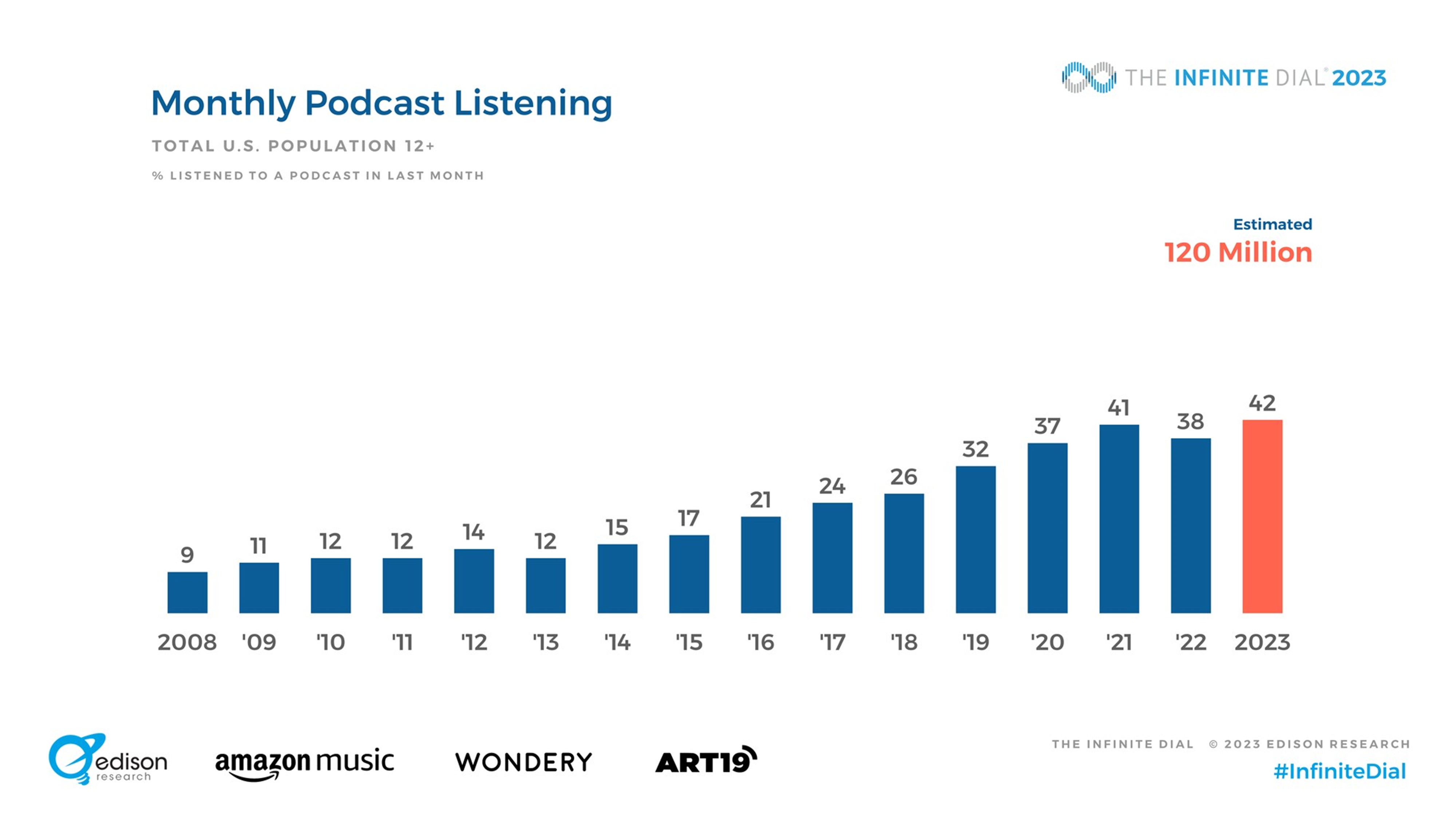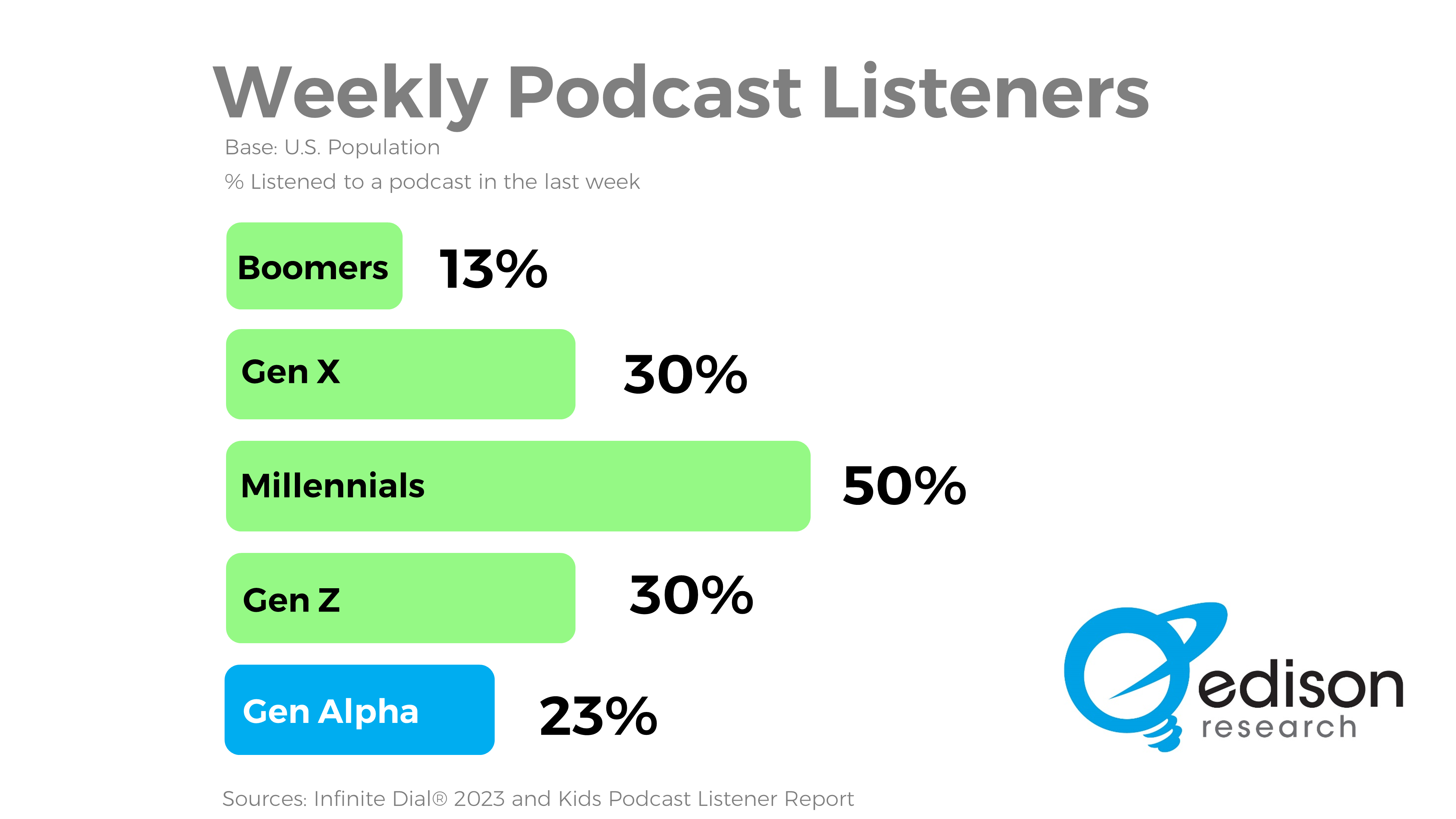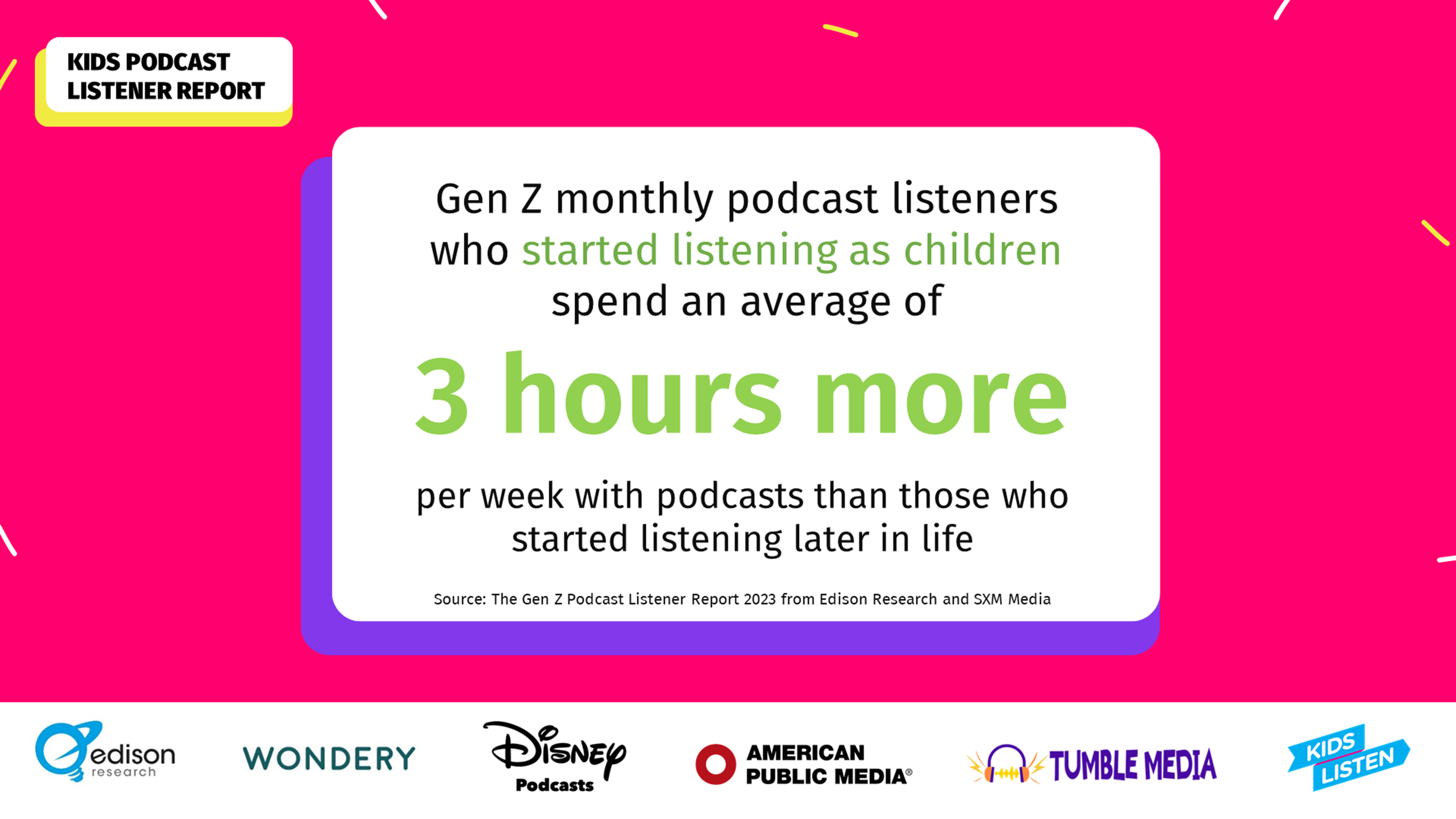Podcast Research · August 30, 2023
Generations and Podcast Listening — Highlights from Podcast Movement 2023
By Gabriel Soto
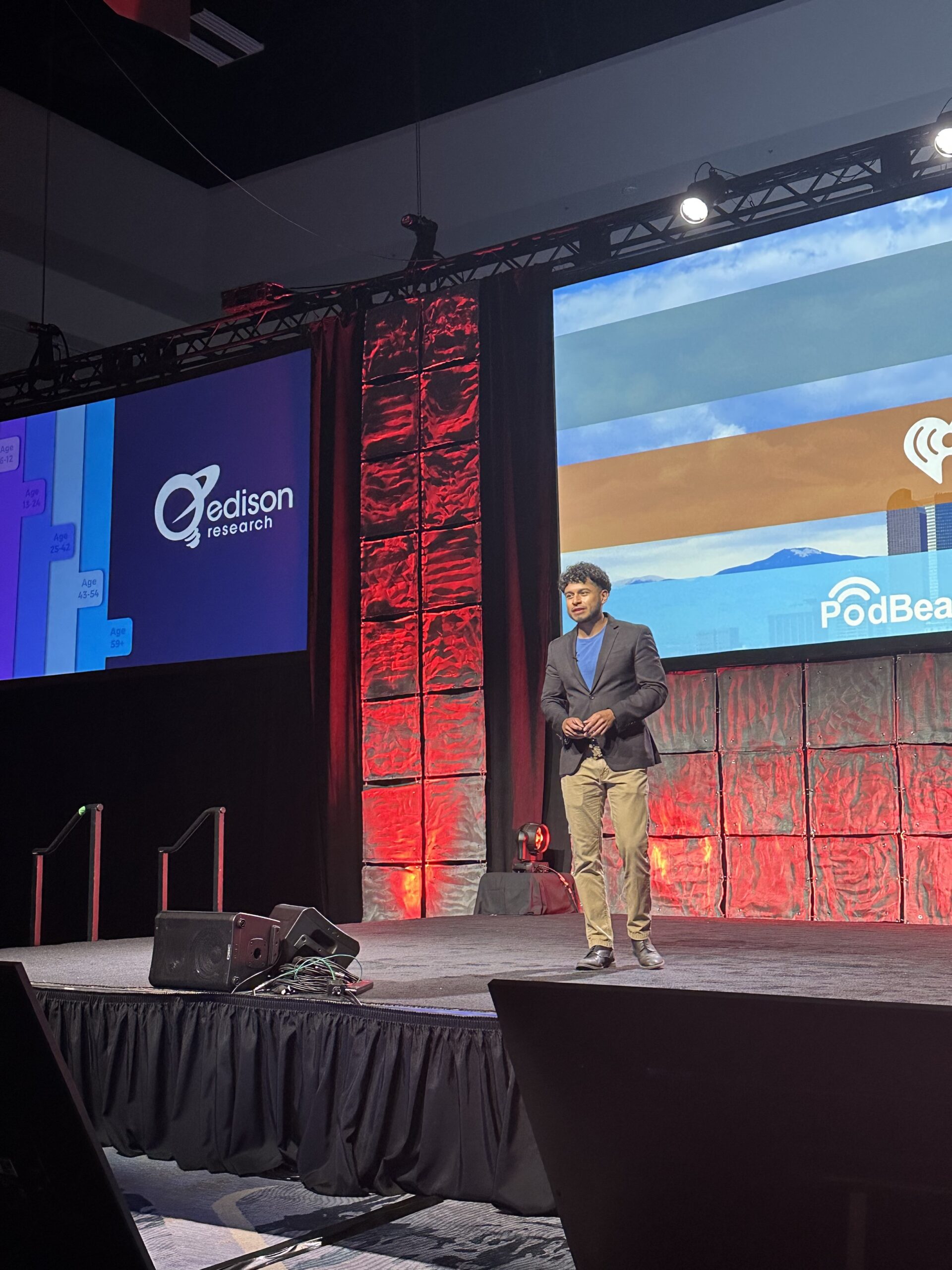
Click here to download Gabriel Soto’s Podcast Movement 2023 keynote presentation
We are in a moment when podcast listening is at an all-time high. Today, 42% of Americans age 12+ listen to the medium every month. However, there are still generations of Americans that podcasting is overlooking. If we appeal to them, it could mean growth at a similar rate that we achieved in the last ten years.
Last week at Podcast Movement 2023 Denver, I got to demonstrate why each generation of Americans, from Boomers to Kids, is crucial to podcasting – and why each is worth taking a shot on. The most important shot might just be the one we take on our kids.
Of the five cohorts I examined in Denver, the highest rate of podcast listening occurs among U.S. Millennials (currently age 25-42). Half (50%) listen to the medium every week. Podcasting has not done enough to appeal to listeners under 25 — the absence of shows like Disney’s Frozen Podcast before this year’s Podcast Movement is an example of that. Historically, the hope has been that future generations will adopt podcasts as Millennials once did — as they get older. But this state of complacency could hinder podcasting’s growth.
It’s impossible to know if Gen-Z and Generation Alpha, two generations inundated with hundreds of competing digital platforms, will adopt podcasts as much as Millennials by the time they mature to the same age (25-42). But we do know the medium can significantly influence its destiny.
Ages 6-12 are some of the most transformative years of our lives. It’s why boomers still listen to radio – because they grew up with it, why I still play Pokémon — because I grew up with it, or why Gen-Z’s go-to medium is YouTube – because they grew up with it. Taking a shot at appealing to kids today might just lead to podcasts – your podcast — defining their generation.
According to the Gen-Z Podcast Listener Report, 13-24-year-olds who started listening as children spend an average of 3 hours more per week with podcasts than those who started listening later in life.
As with many behaviors, starting young is a pathway to developing an affinity for podcast listening. However, marketers and brands that can help by bringing crucial funds to the kid’s space often hesitate to invest in such young listeners.
One of the biggest barriers to investing in children’s podcasts is the lack of profit, “we cannot ask kids for their money, nor do they have any money to give.” If I asked you which generation of podcast listeners in the U.S. boasts the highest annual household income – chances are you say Boomers, Gen X, or Millennials. All three are close, but yet so far from the correct answer. It is actually the homes of kids podcast listeners that bring in the most money.
Just under half (47%) of parents to Kids Podcast Listeners report a household income over $100,000.
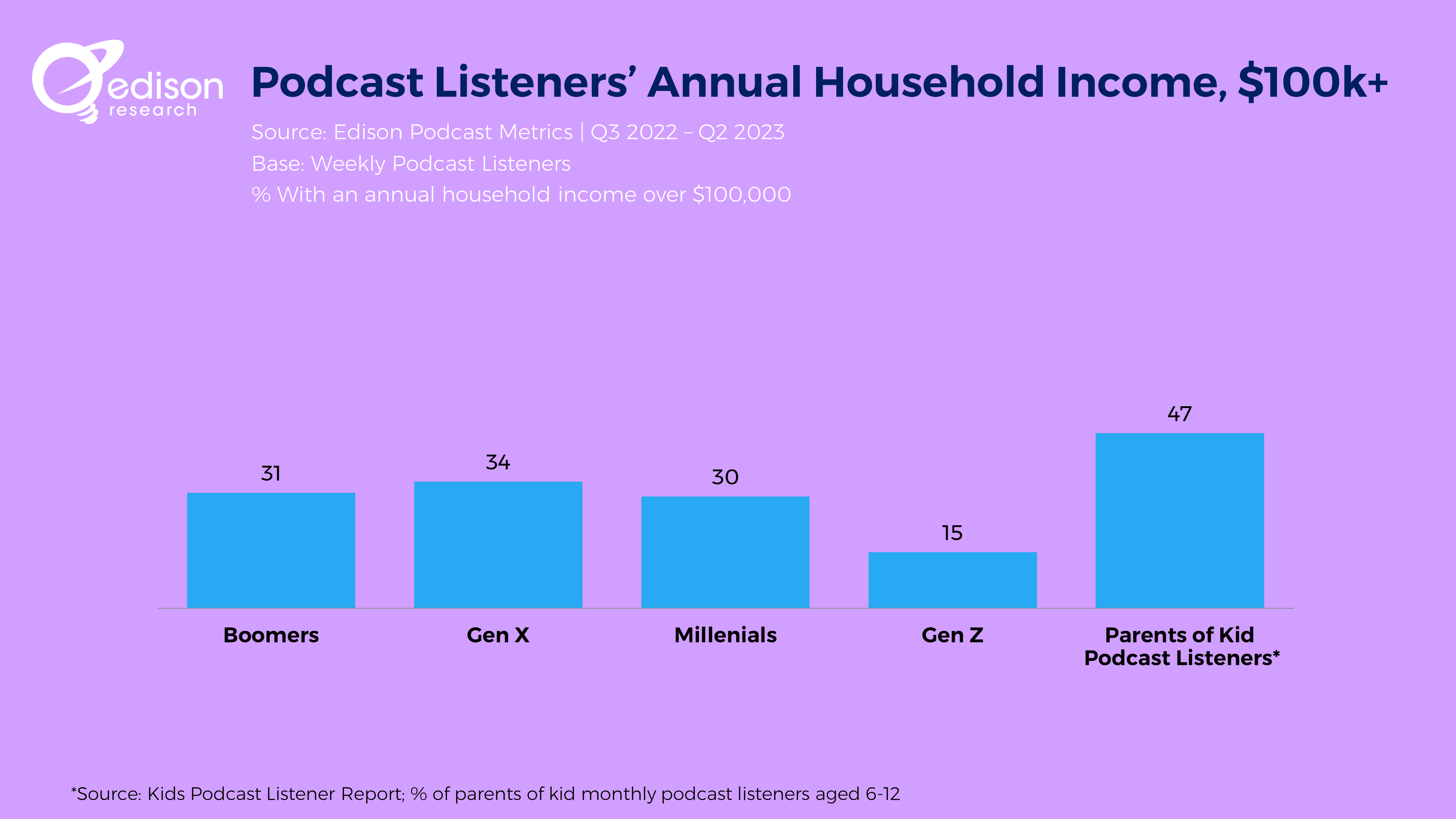
It’s simple math when you think about it — kids podcast listeners are more likely to live in a home with two or more combined incomes – their parents. Advertisers don’t need to worry about marketing to children podcast consumers because the adults in their lives are worth advertising to.
If brands want to be welcomed by the parents above, the best connection is their kids and the podcasts to which their kids listen. Over two-thirds (69%) of parents of kid podcast listeners aged 6-12 say their kids listen with other people, and most of these co-listeners are doing so with their parents. In an untapped landscape of children’s podcasts, many of these kid-and-parent co-listeners are waiting for the next show to draw their attention.
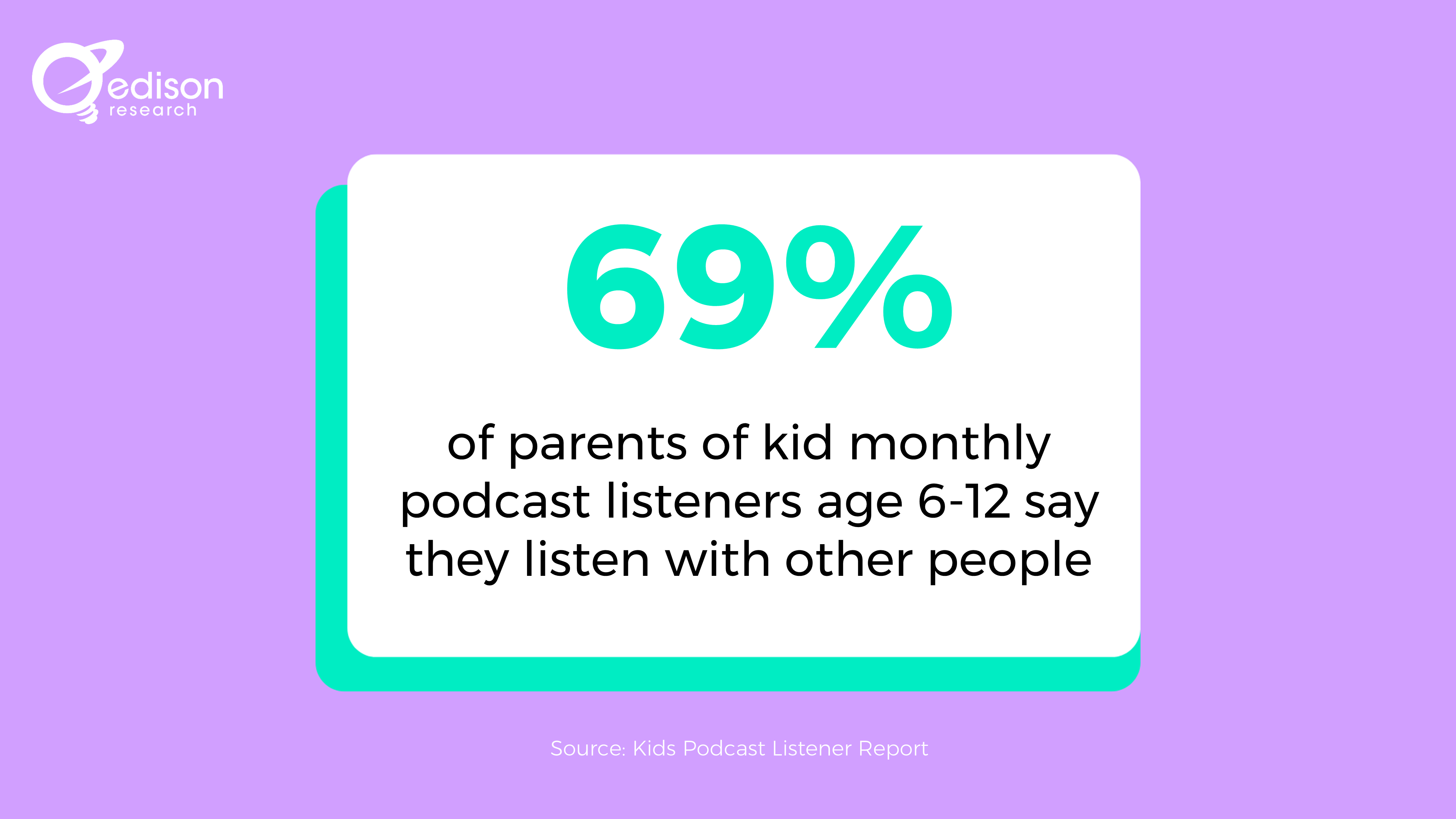
Generation Alpha, those born after 2011, will dictate podcasting’s future. As a medium, we can evolve into one that effectively appeals to kids under 12. Not only is it profitable, but it is also setting a path to continued growth for podcasting consumption and creation.
I’ll leave you with one video from the Kids Podcast Listener Report that highlights that today’s kids are not only the listeners of tomorrow but also the creators of the future.
